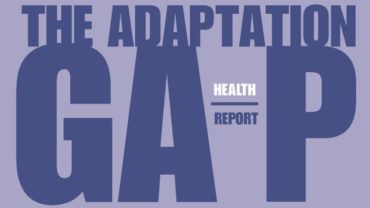Four pilot countries have joined UNEP DTU Partnership and other partners in a project aimed at building capacity for transparent and effective climate adaptation action.
In the new Initiative for Climate Action Transparency (ICAT) Adaptation project, starting this week, UNEP DTU Partnership will work together with Bangladesh, India, South Africa and Dominican Republic in strengthening their capacity to plan, implement, monitor, and evaluate effective and efficient adaptation actions in a transparent manner.
UNEP DTU Partnership will lead the development of and iterative testing of a toolbox and methodologies for transparency of adaptation as well as overall project management and coordination with the larger ICAT project.
In line with the Paris Agreement
ICAT puts into practice the request stated in the Paris Agreement to strengthen national institutions and create the foundation for the enhanced transparency. ICAT’s mission is to help countries better assess the impacts of their climate policies and actions and fulfil their transparency provisions. It does this by increasing the overall transparency capacity of countries, including policy evaluation capacity, and by providing methodological guidance to support policy evaluation.
In line with ICAT’s mission, this new project covers the inclusion and expansion of support to adaptation-focused transparency arrangements.
It is a response to a strong country demand for increased capacity in monitoring, reporting, and evaluation. As well as a need for a framework, that improves transparency by tracking progress toward the implementation of national adaptation plans, Nationally Determined Contributions, and other provisions under the Paris Agreement and the Sustainable Development Goals.
Establishing transparent and flexible systems for monitoring, reporting, and evaluation of adaptation action and support is a central means toward this end.
Developing tools and methods
The project will develop and test tools and methodologies through which to assess adaptation policies and actions, and advance their implementation and adoption via national dialogue and training.
The ICAT Adaptation project will be fully embedded in the ICAT Initiative Coordination Team and where possible and useful, work will build on past and ongoing ICAT activities.
The partners of the new adaptation project are: The Energy Research Institute (TERI) from India, International Centre for Climate Change and Development (ICCCAD) from Bangladesh, Council for Scientific and Industrial Research from South Africa and National Council for Climate Change and Clean Development Mechanism from Dominican Republic


